Our Speakers
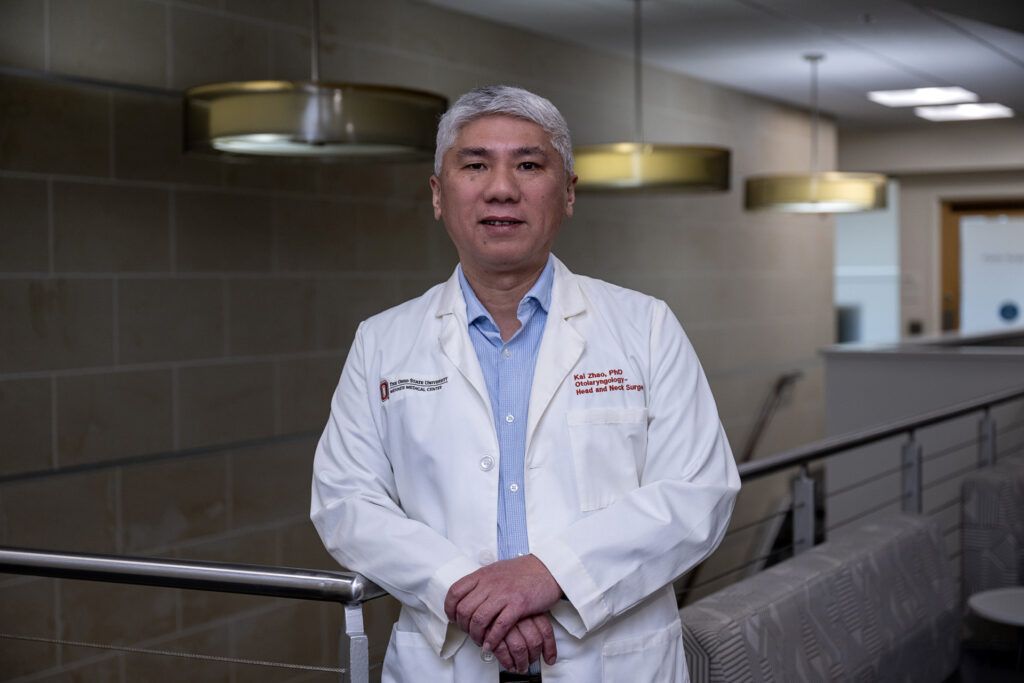
Dr. Kai Zhao received his Ph.D. in Bioengineering from the University of Pennsylvania in 2004, specializing in respiratory biofluid mechanics. Following his doctoral studies, he conducted postdoctoral and independent research at the Monell Chemical Senses Center in Philadelphia, where he focused on theoretical and experimental approaches to understand the physiological fluid dynamics and transport in the nasal airway, with a particular focus on olfaction. In 2015, he joined the Department of Otolaryngology – Head and Neck Surgery at The Ohio State University, where he established a new Nasal Physiology and Therapeutic Center. His work involves active clinical collaborations to investigate nasal sinus diseases, including olfactory loss, sinus surgery simulation and optimization. His research has been supported in the past by the U.S. Air Force, NIH and private foundations. He is currently Principle Investigator on 2 NIH R01 funding.
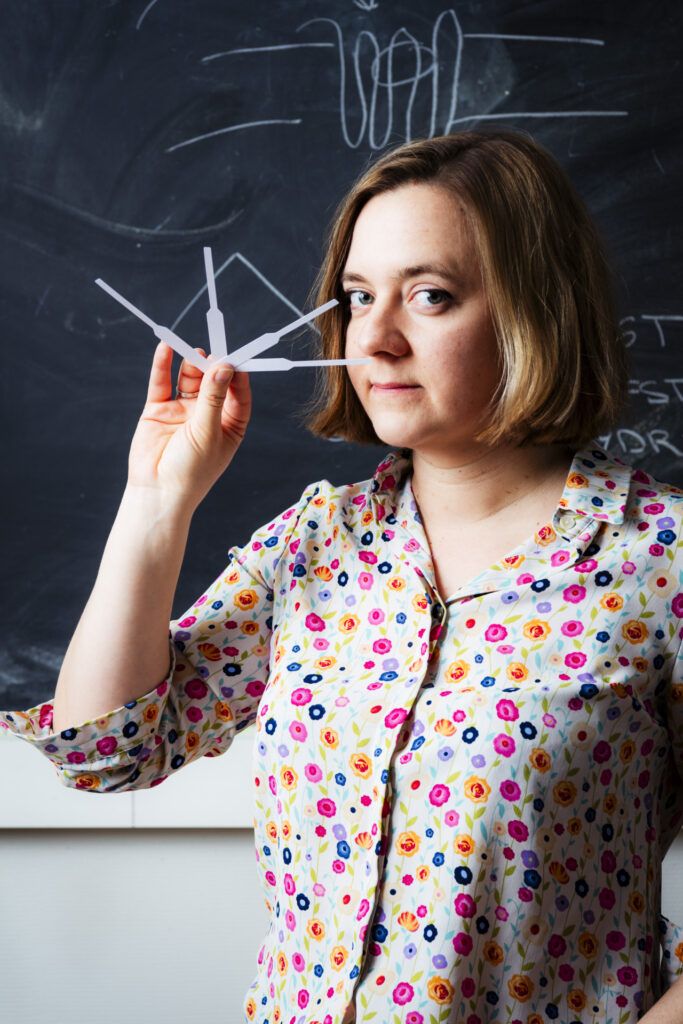
Claire de March is a researcher specializing in olfaction, computational chemistry, and cell biology. She began her career with training as a flavorist and sensory analyst, gaining industry experience before transitioning to academia to study how we perceive odors. Claire earned her PhD in computational chemistry from Nice University, where she explored the molecular mechanisms of olfaction. She then conducted postdoctoral research at Duke University in the lab of Hiroaki Matsunami, focusing on cell biology and biochemistry of odorant receptors.
Since joining the Institute of Chemistry of the Natural Substances (ICSN, France) in 2022 as a CNRS researcher, Claire has integrated computational, biochemical, and cellular approaches to deepen our understanding of olfactory perception at the atomic level. In collaboration with Duke University, the University of California San Francisco, and City of Hope, she contributed to publishing the first experimental structures of human odorant receptors in 2023.
Since joining the Institute of Chemistry of the Natural Substances (ICSN, France) in 2022 as a CNRS researcher, Claire has integrated computational, biochemical, and cellular approaches to deepen our understanding of olfactory perception at the atomic level. In collaboration with Duke University, the University of California San Francisco, and City of Hope, she contributed to publishing the first experimental structures of human odorant receptors in 2023.

Dr. Christopher Simons is an Associate Professor of Sensory Science in the Department of Food Science and Technology at the Ohio State University. His research utilizes a multidisciplinary approach to develop fundamental insights related to the mechanisms underpinning food perception, reward, and choice. He leverages knowledge gained from these investigations to develop new methodologies for the food and beverage industry that can be utilized to create healthier foods and/or improve the product development cycle. Dr. Simons has over 100 peer-reviewed publications, and his research has been featured on National Public Radio’s Science Friday and NBC Nightly News. He is the recipient of multiple national and international awards for his research and teaching. Prior to his start at Ohio State, Chris spent nearly 10 years in the food industry where he led the sensory research function for a large, multinational flavor company. Dr. Simons has a B.S. in biology from the University of Oregon, a M.S. in physiology from Portland State University, and a Ph.D. in food science (sensory science emphasis) from the University of California, Davis and subsequently completed post-doctoral fellowships at the EPHE in Massy, France and the Dental School at the Universite Paris 7.
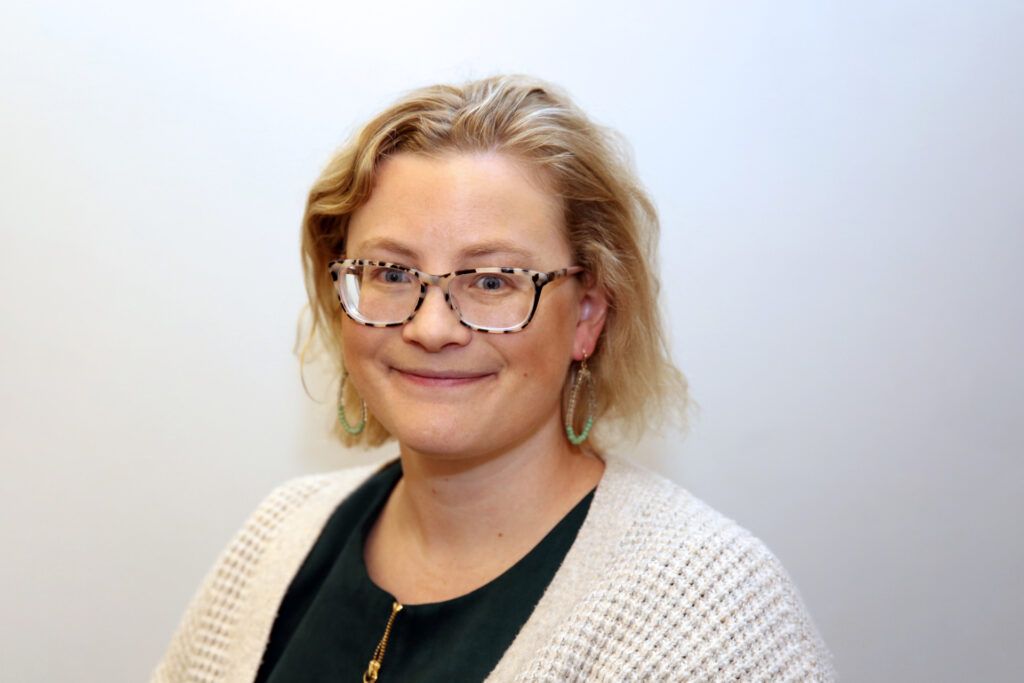
Lauren Roberson, PhD, RD, LD, serves as an Assistant Professor in the Human Nutrition Program within the College of Education and Human Ecology at The Ohio State University. She also holds the role of State Extension Specialist in the College of Food, Agriculture, and Environmental Sciences. As a community-engaged interventionist, Dr. Roberson focuses on nutrition and health programs designed for community-dwelling older adults. Her areas of expertise include nutrition for aging populations, malnutrition screening in community settings, and creating tailored nutrition education and health messaging for older adults.
A licensed dietitian registered with the State Medical Board of Ohio, Dr. Roberson currently presides as President of the Kentucky Academy of Nutrition and Dietetics (KAND). Her research has been published in respected journals such as Nutrition Today, Journal of Exercise and Nutrition, and American Journal of Health Education. She earned her PhD in Health and Strategic Communication, as well as an MS in Dietetic Administration, from the University of Kentucky, where she also completed her dietetic internship.
A licensed dietitian registered with the State Medical Board of Ohio, Dr. Roberson currently presides as President of the Kentucky Academy of Nutrition and Dietetics (KAND). Her research has been published in respected journals such as Nutrition Today, Journal of Exercise and Nutrition, and American Journal of Health Education. She earned her PhD in Health and Strategic Communication, as well as an MS in Dietetic Administration, from the University of Kentucky, where she also completed her dietetic internship.
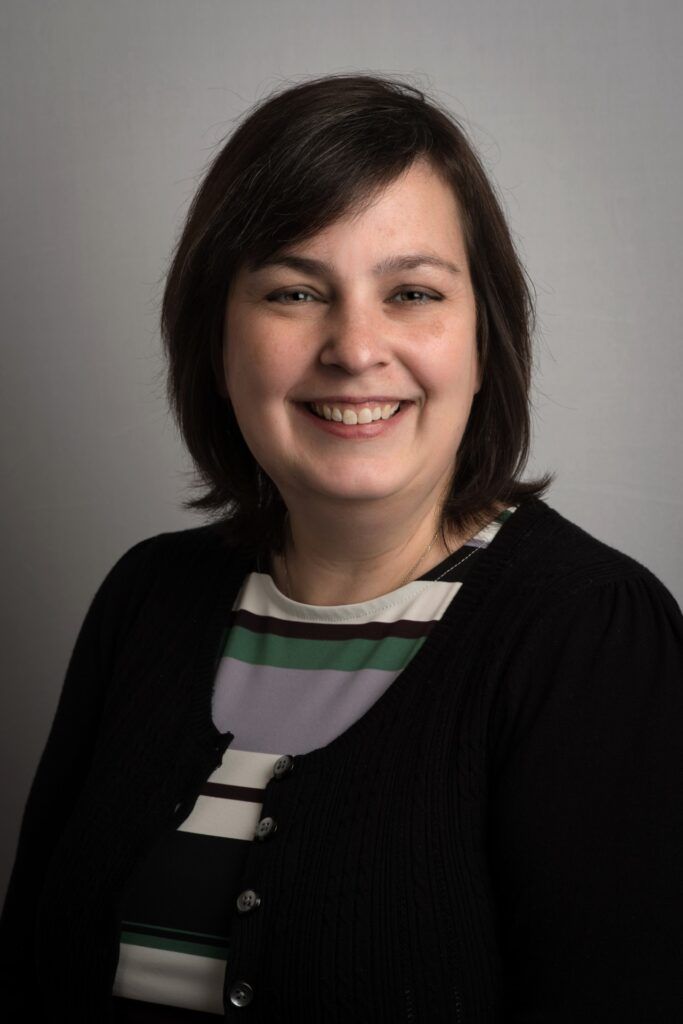
Dr. Ann-Marie Torregrossa is the Director of the University at Buffalo Center for Ingestive Behavior Research, the Area Head for Behavioral Neuroscience, and an Associate Professor of Psychology at the University at Buffalo. Dr. Torregrossa has been studying controls of food intake and food choice since her first job as a technician at the Bourne Behavioral Research lab. She received her Ph.D. from the University of Utah and completed her post-doctoral work at The Florida State University before opening her lab in Buffalo in 2015. She has been awarded the Ajinomoto Award from the Association for Chemoreception Sciences and the Epstein Research Award from the Society for the Study of Ingestive Behavior for her work on the role of saliva in taste and bitter food acceptance.
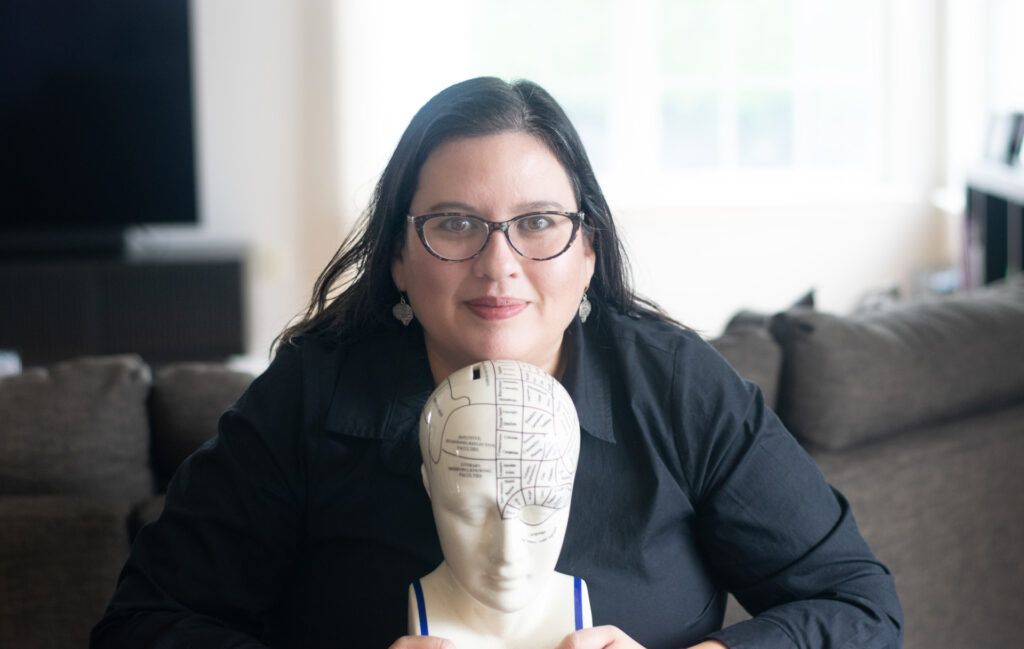
Michelle Murphy Niedziela, PhD, is a behavioral neuroscientist and founder of Nerdoscientist, specializing in integrating consumer neuroscience, behavioral science, and traditional research methods to decode consumer response. A sought-after speaker, author, and podcaster, she also teaches and consults on consumer research, helping organizations apply cognitive science tools to drive product innovation and strategy. With experience spanning academia (Monell Chemical Senses Center) and industry (Johnson & Johnson, Mars Chocolate, HCD Research), she brings a multidisciplinary approach to understanding consumer behavior.

Claire Murphy, Ph.D. is Professor of Psychology at San Diego State University and Adjunct Professor of Psychiatry at the University of California, San Diego. Her research focuses on chemosensory function in health and disease, with a particular focus on lifespan aging and neurodegenerative diseases such as Alzheimer’s disease. The Lifespan Human Senses Laboratory uses neuroimaging, neuropsychology and psychophysics to provide insight into the topic she will address in this symposium: Neurogastronomy across the lifespan: how the brain’s creation of flavor changes with age and why it matters for health and disease. Dr. Murphy has served the chemical senses as a standing member of the NIH Neuroscience of Interoception and Chemosensation (NIC) Study Section as well as program chair of meetings of the Association for Chemoreception Sciences (AChemS) and the International Symposium on Olfaction and Taste (ISOT). Her work has been recognized with a Merit Award from the National Institute on Aging.
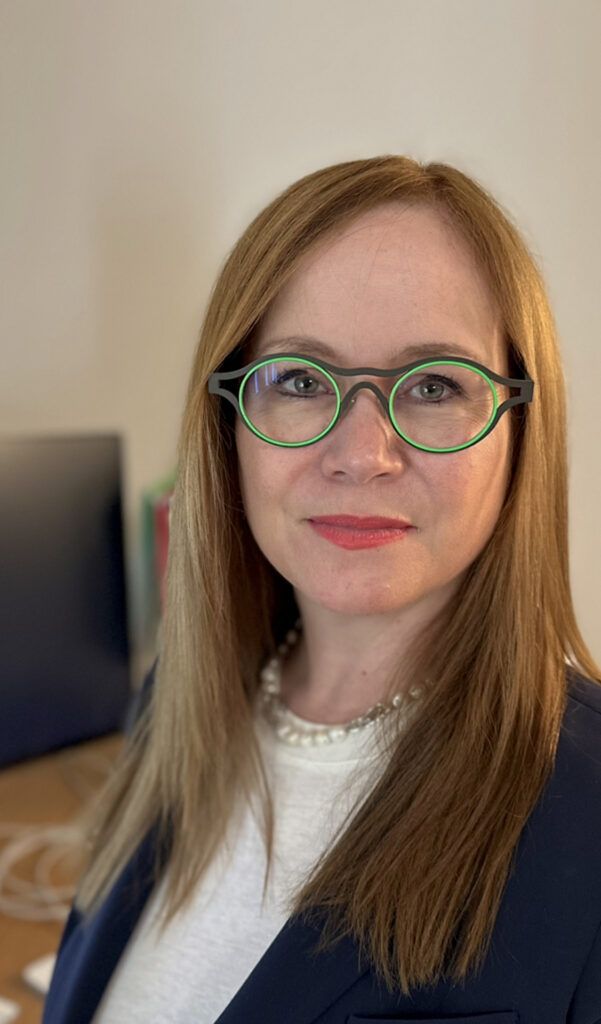
Dana Small, PhD is the Canada Excellence Research Chair in Metabolism and Brain at McGill University. Her research focuses on understanding how sensory, metabolic and neural signals are integrated to determine food choices and on how the dysregulation of these systems contribute to the development of obesity, diabetes and cognitive impairment. Her work combines neuroimaging with metabolic, psychophysical and neuropsychological methods in humans and she has established a translational - reverse translational program of research through collaborations with colleagues working in mouse models. Dr. Small has served as a standing member of the HSDO study section, on the Executive Boards of the Association for Chemoreception Sciences (AChemS) and the Society for the Study of Ingestive Behavior (SSIB) as Secretary (AChemS), Program Chair (AChemS/SSIB) and President (SSIB). Her work has been recognized by the Ruth Pike Award for contributions to research in nutrition, the Alan Epstein Award for a specific research discovery that has advanced the understanding of ingestive behavior, the Moskowitz-Jacobs Award for research excellence in the psychophysics of taste and smell and the Ajinomoto Award for research in gustation. She has also served as Associate Director of Research at the John B Pierce Laboratory (2015-2018), Board Member for the National Academy of Sciences Board on Behavioral, Cognitive and Sensory Science (2014-2020), Divisional Director of Nutritional Psychiatry at Yale (2018-2022) and has Directed the Modern Diet and Physiology Research Centre since 2016. She currently leads the Brain and Metabolism Initiative (BMI) at McGill University.
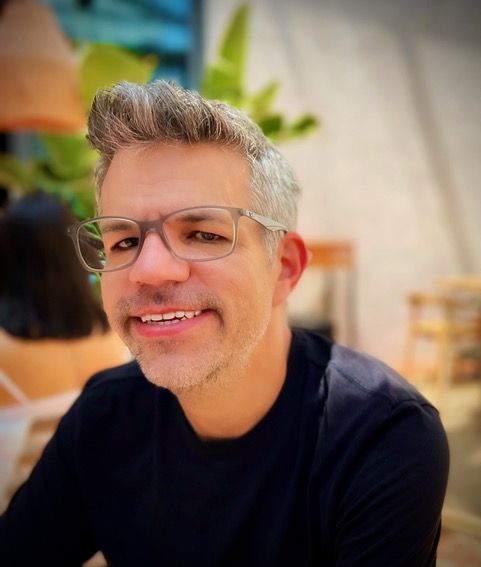
Kyle Burger is a Member at the Monell Chemical Senses Center, faculty at MindCORE at the University of Pennsylvania, and Director of the Neuropsychology of Ingestive Behavior Laboratory. Dr. Burger holds a PhD in Nutritional Sciences, a Master of Public Health in Behavioral Sciences, and is a registered dietitian. His research integrates human neuroimaging and measures of food reinforcement learning, implicit and explicit behavior, and cognitive functioning. These approaches provide insight into how food cue responses develop, influence food choices, and contribute to psychological and physiological consequences related to unhealthy eating patterns. His laboratory studies ingestive behavior from early life through adulthood to identify risk factors for obesity and weight-related diseases.
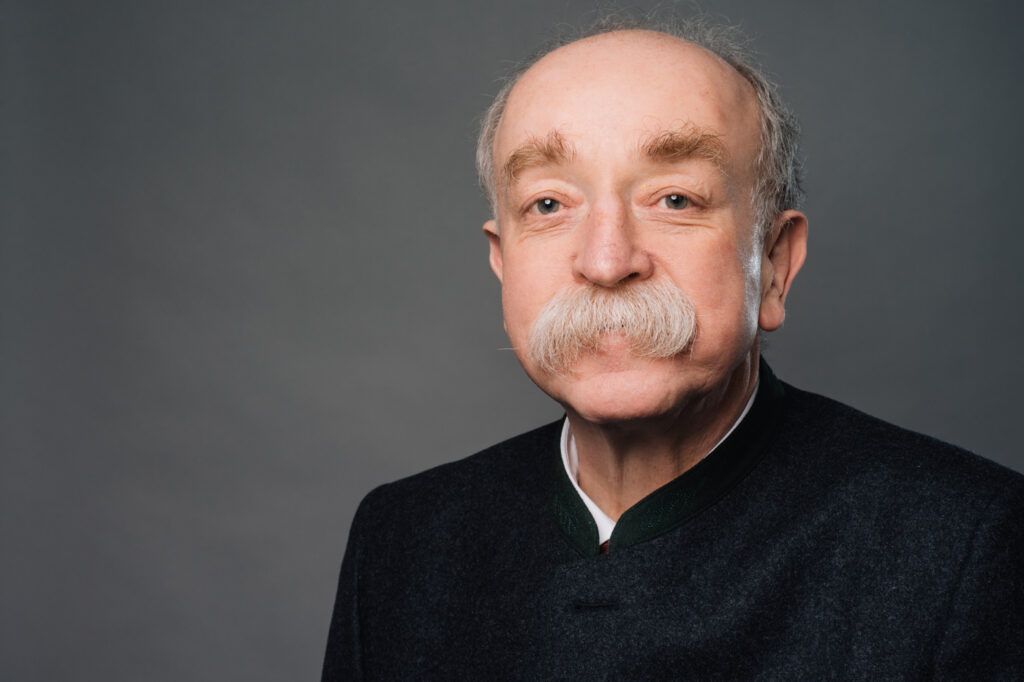
Thomas Hummel does research in chemosensory systems at the Smell and Taste Clinic of the Department of Otorhinolaryngology of the Technische Universität Dresden in Germany, looking at smell, taste, and trigeminal function. The olfactory/gustatory dysfunction clinic also involves patients with neurodegenerative causes of olfactory loss, and investigations in the intranasal trigeminal system. Dr. Hummel sees approximately 1000 patients per year. Investigations in the chemical senses are performed using electrophysiological (olfactory event-related potentials, recordings from the mucosa of the nasal cavity), psychophysical, and imaging techniques (MRI).
